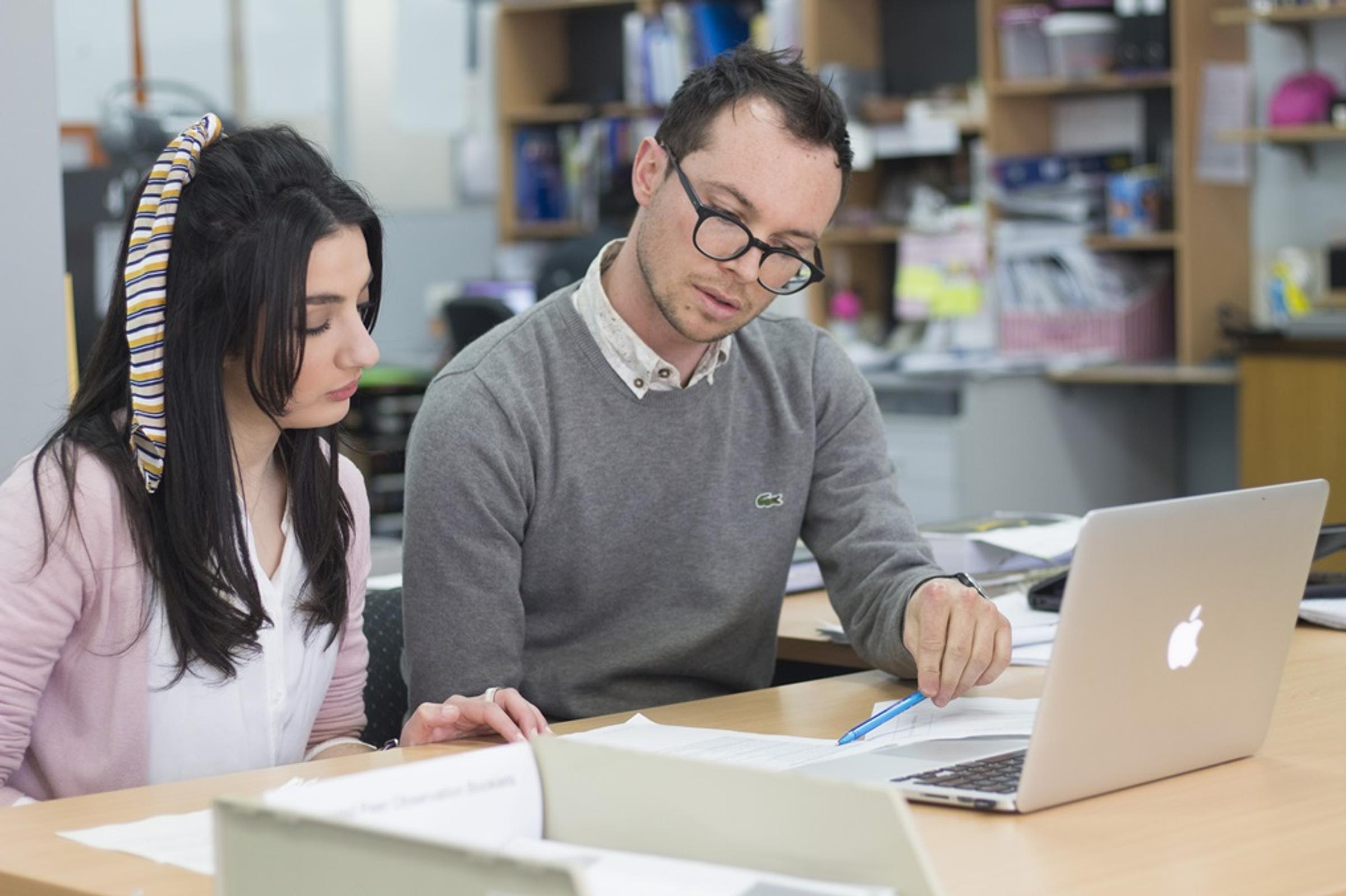Teaching and Learning

Teaching and Learning
Learning
Students, staff and the community are already seeing the impact of our growing numbers. The Year 7's in particular are enjoying their expanded team teaching space. The space allows for flexible grouping and differentiated instruction for all students.
Managing Homework
In response to some comments made by both parents and students recently, it is timely to share some strategies for supporting students with homework. Research shows that students are more successful in school when parents take an active interest in their homework — it shows students that what they do is important. Of course, helping with homework shouldn't mean spending hours hunched over a desk. Parents can be supportive by demonstrating study and organization skills, explaining a tricky problem, or just encouraging their child to take a break. Here are some tips to guide the way:
Know the teachers — and what they're looking for.
- Attend school events, such as parent-teacher conferences, to meet your child's teachers. Be aware of what work is expected and due dates. Compass is a great way to do this.
- Set up a homework-friendly area. Make sure your child has a well-lit place to complete homework. Keep supplies — paper, pencils, glue, scissors — within reach
- Schedule a regular study time. Some people work best in the afternoon, following a snack and a rest or physical activity; others may prefer to wait until after dinner.
- Help them make a plan. When there's an larger project or assignment to tackle, encourage your child break up the work into manageable chunks. Create a work schedule for the night if necessary and take time for a 15-minute break every hour, if possible
- Keep distractions to a minimum. This means no TV, loud music, or phone calls. Occasionally, though, a phone call to a classmate about an assignment can be helpful if that is the purpose of the call..
- Make sure your children do their own work. They won't learn if they don't think for themselves and make their own mistakes. Parents can make suggestions and help with directions. But it's a student's job to do the learning
- Be a motivator and monitor. Ask about assignments, quizzes, and tests. Check Learning Tasks on Compass. Give encouragement, check completed homework, and make yourself available for questions and concerns
- Set a good example. Do your children ever see you diligently balancing your budget or reading a book? Children are more likely to follow their parents' examples rather than their advice
- Praise their work and efforts. Mention academic achievements to relatives
- Talk about it with your child's teacher. Some students have trouble seeing the board and may need glasses; others might need an evaluation for a learning problem or attention disorder.
Resource: https://kidshealth.org/en/parents/homework.html
Homework Club
Homework club began this week and is held on Tuesdays and Thursday in the library from 3-4pm.
Teaching
It’s not just our students who are learning, but also our teachers. Next week, teachers will begin Peer Observations. They will observed other teacher’s practice and be observed themselves so they may improve their own practice.
Our teachers are also supporting the learning of others outside our school. Several of our teachers are providing feedback to the Australian Institute of Teaching and School Leadership (AITSL) about their Induction App. We are excited to contribute to the development of a tool that will benefit teachers around the world.
Student Voice and Agency
Mr Sam Eddy and I attended a professional learning day with the globally recognised pioneer of student voice and agency Dr. Russell Quaglia. Dr. Quaglia gave our school’s approach to student voice and agency a glowing tick of approval.
This session was following up by a visit by UN delegates who met with our school leadership to identify what they would like to see the United Nations do to improve the world. The information from this session will be fed back to the UN!
We are also excited to be working with a range of other partnerships this year to support student voice and agency in our school, including Monash University, Australian Council for Education Research (ACER) and Thermo Fisher.
Murray Cronin
Head of Curriculum & Pedagogy
